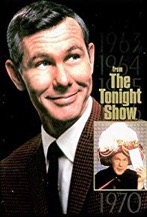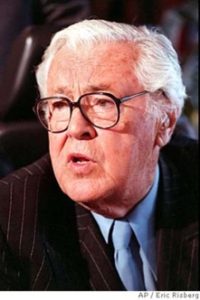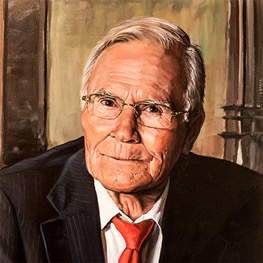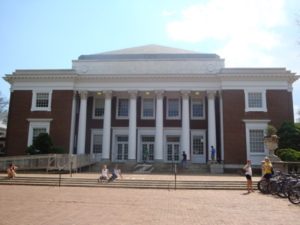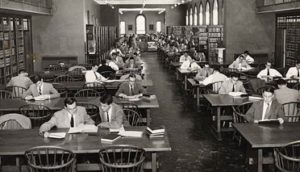Animal Pharm
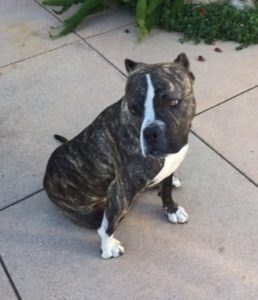
My problems started with a dog’s limp. Two years ago, our brindle pit bull’s back right leg was swollen and inflamed. In the examination room, the vet posted an X‑ray on a back-lighted screen and pointed to shadowy blotches around P.D.’s knee.
“The ACL has torn away from the bone,” he said. “He’s in a lot of pain, and it’s going to get worse.”
“Can you fix him up?” I asked, naively.
I wrote a check big enough to cover a month’s vacation at a luxury resort in Maui, and the vet rebuilt P.D.’s knee. When they brought him out of the recovery room after his surgery, staples were stitched over a deep cut along the length of his leg, but he didn’t seem to notice. He bounded across the room full tilt and jumped up on me, his tail wagging at hummingbird-wing speed.
“He has to stay off that leg for six weeks,” the vet said, looking worried. “No running or jumping.”
“You’ve got to be kidding,” I said. “Look at him! He’s nuts!”
“You have to restrain him,” the vet said. “Two weeks in a cage. Four in a small room. If he ruins his new knee, we’ll have to operate again.”
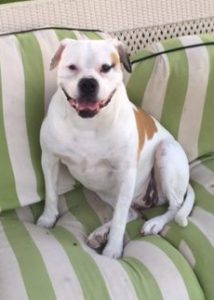
Back at home, Hercules and Superman, working as a team, couldn’t have muscled P.D. into a dog cage. I gave up on it, set up his dog bed in my office, and locked us inside. Whereupon began the longest six weeks of my life. P.D. spent every waking moment batting around the room, bouncing off walls, and jumping all over me. It was like living in a closet with a kangaroo on speed.
Twice he escaped into the back yard and bee-bopped up the hill to the fence-line before I could lasso him with a leash and drag him back to our jail cell.
Miraculously, despite his best efforts to rupture his knee, he survived the six weeks without blowing it out.
Three weeks later, his back left leg went lame. Back to the vet. Another torn ACL and another big check followed by a second six weeks in Hell.
Dogs don’t blow out their front knees, so I thought we were done. I was wrong.

I was at the back door watching Zoey, our American Bulldog, walk lazily across the yard, sniffing flowers. Suddenly, she lifted her back right leg, yelped, and ran over to me, whining.
“Damned bad luck,” the vet said.
I wrote the now standard big check and descended into Hell again.
Two months after Zoey recovered, P.D. lodged a fox-tail in his paw that worked its way up inside his leg, requiring yet another surgery. I wrote the check and went back to jail.
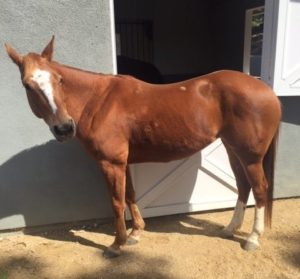
After vet bills approximating the annual gross domestic product of Albania and several months of confinement in a small space with a wild dog, a prudent person would back away from animal husbandry. Me? I doubled down.
Hidden Hills is zoned for horses. I grew up in a Virginia farm community and I still miss White Hall and Sugar Hollow, so I started construction of a two-stall horse barn to remind me of home.
I bought a little red mare, Margarine. I boarded her in another barn while mine was being built and hired a horse whisperer extraordinaire as my barn manager. “Marge will need a companion,” she said. “Horses are herd animals. It’s cruel to isolate them.”
Lily, an Andalusian mare, was for sale in Lancaster. To demonstrate to me that she was well-trained, the seller spurred her up and down his corral, jerking her savagely one way and then the other, running her at full speed and then nearly ripping her head off to stop her on a dime. It was hard to watch.
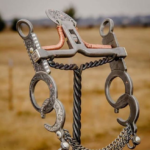
Heartbreakingly, when the horse whisperer inspected Lily for physical soundness, she saw that the seller had bridled her with a spade bit. A spade bit has a “spoon,” a flat plate that goes over the horse’s tongue and protrudes up inside its mouth. A skilled rider can use it to good effect. In a cruel rider’s hands, it’s an instrument of torture.
I would have paid five times the asking price to rescue Lily from that guy, but the horse whisperer held me back. “Don’t reward his brutality,” she said. “He just wants to get rid of her anyway.” She was right. I bid low and he caved in.
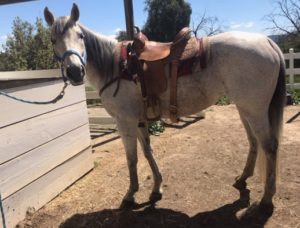
My barn still wasn’t ready, so we trailered Lily to the four-stall barn where Marge was boarding. The first time Marge saw Lily, she laid her ears back flat and bared her teeth. We hoped Marge would get used to Lily over time, but her hatred only grew.
Meanwhile, Lily fell in love with the gelding in the stall next to her. Every time we tried to separate them, she had a nervous breakdown. Although Lily’s romantic intentions could never be consummated (he’s a gelding, for Pete’s sake!), we couldn’t cure her separation anxiety no matter what we did.
Whoever came up with the term “horse sense” obviously never met a real horse.
By the time my barn was ready, Marge hated Lily, and Lily was in love with a horse I didn’t own. The sensible solution was to sell one of them and buy another horse for my second stall, but of course, I had fallen in love with both of them by then and I couldn’t bring myself to let go of either one.
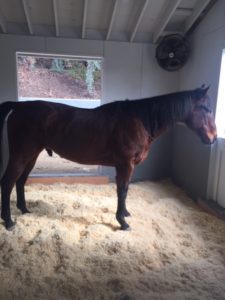
So in Bakersfield, we found Wilson, a tall bay gelding with a docile, easy-going personality. I moved him and Marge into my barn and paid the boarding fee to keep Lily at the other barn where she could continue to rub noses (and nothing else) with her neutered paramour.
Everyone was happy.
Until we turned Wilson and Marge out into the corral. They grazed peacefully together for almost an hour. Then, for no apparent reason, Marge began kicking the living crap out of Wilson. Being Forrest Gump-like, it took him a while to figure out he was under attack, but once the light bulb came on, he gave as good as he got. The horse whisperer heroically jumped in between them and herded them back into their respective stalls.
“Cuts and bruises,” the vet said. “They’ll be sore for a good while, but they’ll be okay.” He cleaned and bandaged their wounds, and I wrote yet another big check. (By the way, politicians who are concerned about income inequality could learn a lot about redistribution of wealth from the National Veterinary Association.)
Given my equine predicament, a sensible person would sell Marge, but I still loved her despite her severe personality disorder.

So I called the fence man. “We’ll run a fence down the middle of the corral,” he said gleefully as he handed me his estimate.

I swallowed hard and wrote the check. Marge stays on one side of the fence; Wilson on the other. Lily remains in the other barn with eunuch-boy.
That’s it, I told myself. No more animals. Enough is enough. No mas.
Until granddaughter number three got excited about chickens. We built a coop on the hill above the barn. One red and two whites. She named them Icy, Barb, and Fajita. Two days into it, Icy tried to kill Fajita, and Barb almost choked to death on a long piece of straw.
I know what you’re thinking. A sensible person would draw the line, once and for all, at the chickens, but by now I’m a fatalist. I know it won’t work.
It’s only a matter of time until, “Don’t you think goats are kinda cute, Papaw?”



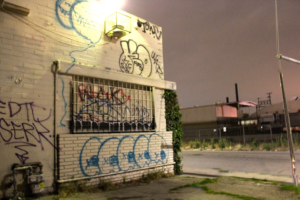
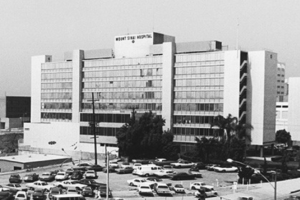
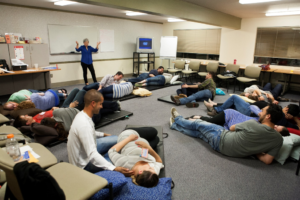
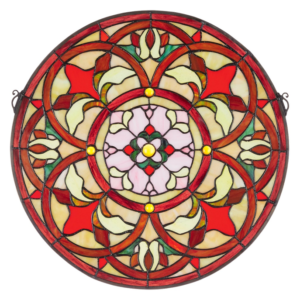

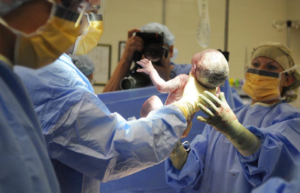 Despite her lower lip being pulled well over her head long before then, Cindy hadn’t screamed once up to that point. She clenched my hands and pushed with all her strength and groaned/screamed from way down deep inside.
Despite her lower lip being pulled well over her head long before then, Cindy hadn’t screamed once up to that point. She clenched my hands and pushed with all her strength and groaned/screamed from way down deep inside.